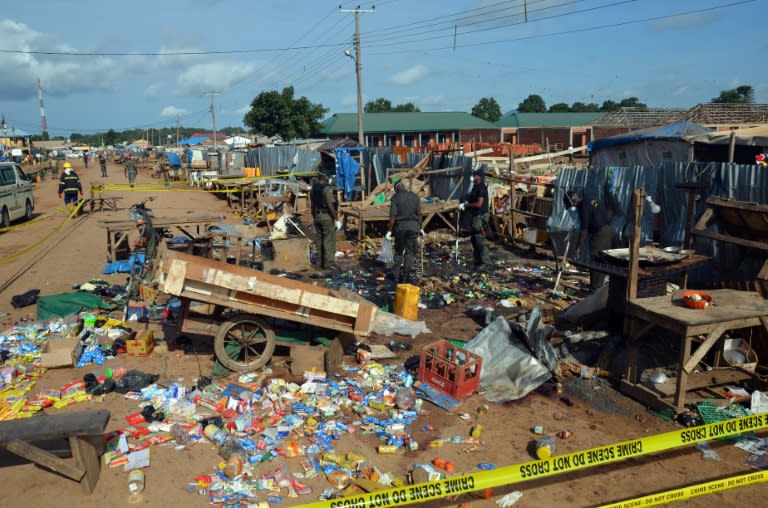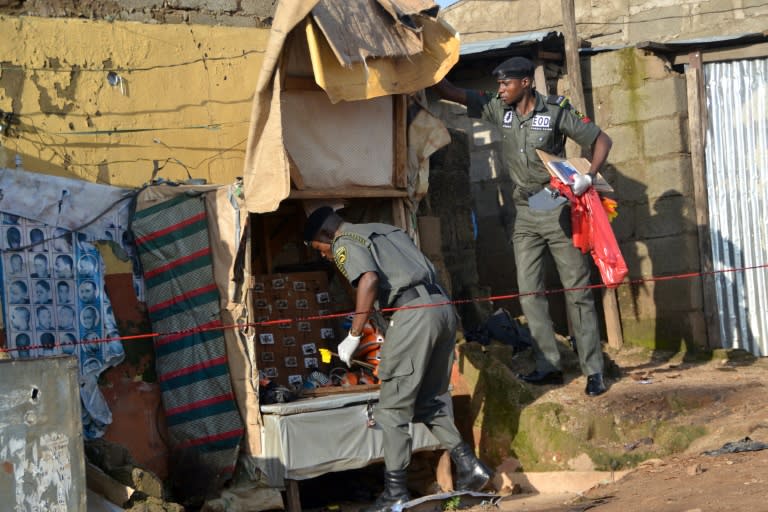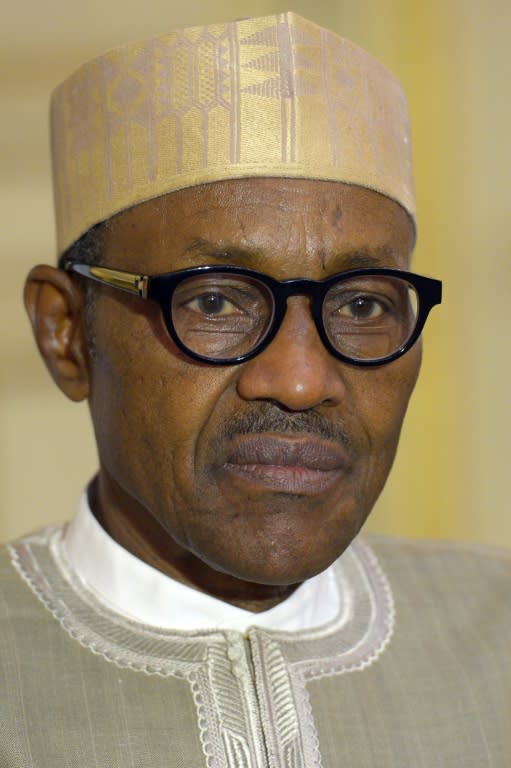18 killed in blasts blamed on Islamists near Nigerian capital
Two explosions that ripped through the outskirts of Nigeria's capital Abuja left 18 people dead and 41 wounded, rescue officials said Saturday, in the latest bloodshed blamed on Boko Haram Islamists. Nigerian President Muhammadu Buhari condemned the attacks, as did the US embassy in Abuja. "The death toll is now 18 because three people died in the hospitals this morning while 41 others were injured and are receiving treatment in the hospitals," Sani Datti, spokesman for the National Emergency Management Agency, told AFP. The blasts took place late on Friday near a police station in Kuje and at a bus stop in Nyanya, in an area previously targeted by Boko Haram militants. Police said Saturday "preliminary investigations revealed the bomb blasts were carried out by two suicide bombers -- a male and a female." The Inspector-General of Police, Solomon Arase, had ordered massive stop-and-search activities in the city and advised residents not to panic, the force said in a statement. "Following the incidents the police high command ordered an immediate deployment of police explosives ordnance disposal units to the scenes to prevent further destructions," it said. An AFP reporter saw four wounded patients at Kuje hospital with 18 more injured at other medical facilities. Kuje residents were shocked over the tragedy as a heavy military presence surrounded the bomb site. A witness account of the Kuje blast said the attackers had walked any from the scene. Idris Abdulkareem said "a lady and a guy" who came on a motorcycle had set off the blast. He said the "guy" left the bike and said he would be back in a few minutes. "The moment he left the bomb sparked (went) off," Abdulkareem told AFP. Kuje, near Abuja's airport, is around 40 kilometres (24 miles) from the city centre and seat of government. The Kuje prison has been reported to be holding dozens of Boko Haram prisoners captured by troops. The bus station in Nyanya had previously been hit twice last year. The first attack,on April 14 left at least 75 dead and was claimed by the Islamists; the second on May 1 left at least 16 dead. Abuja was last attacked on June 25 last year, when 22 people were killed in a blast at a popular shopping centre. Boko Haram later claimed the attack and a separate strike later that day in the Apapa port district of the financial capital, Lagos. The Abuja blasts came a day after at least 10 people were killed when four suicide bombers blew themselves up in Maiduguri, the restive capital of northern Borno state and 11 villagers died in neighbouring Adamawa state. - Hitting soft targets - Since losing most of the territory it took over earlier this year, Boko Haram has reverted to hitting soft targets like markets, bus stations and places of worship as well as hit-and-run attacks on villages in the northeast. An AFP tally puts the death toll at more than 1,260 since Buhari took office on May 29 with a pledge to crush the insurgency. He has given his top commanders until early November to end the fighting, which has claimed at least 17,000 lives and made more than 2.5 million homeless since 2009. Buhari on Saturday condemned the bombings after being briefed by officials who had visited the victims, saying "we must tackle the prevalence of violent extremism." The United States also "strongly condemns the dual explosions in the Nyanya and Kuje areas of Abuja on October 2, and the suicide bombings and militant attacks in Maiduguri and Adamawa on October 1," the US embassy said in a statement in Abuja. Boko Haram, which seeks to carve out an Islamic state in mainly-Muslim northeast Nigeria, has also carried out cross-border attacks in Chad, Cameroon and Niger. A regional force involving 8,700 troops from Nigeria, Chad, Cameroon, Niger and Benin is due to deploy to fight the extremists.




